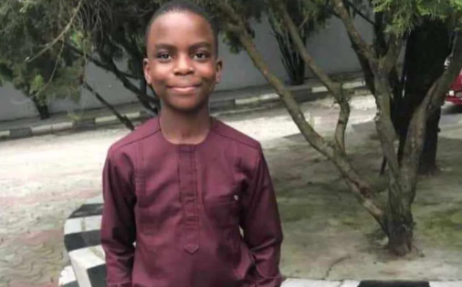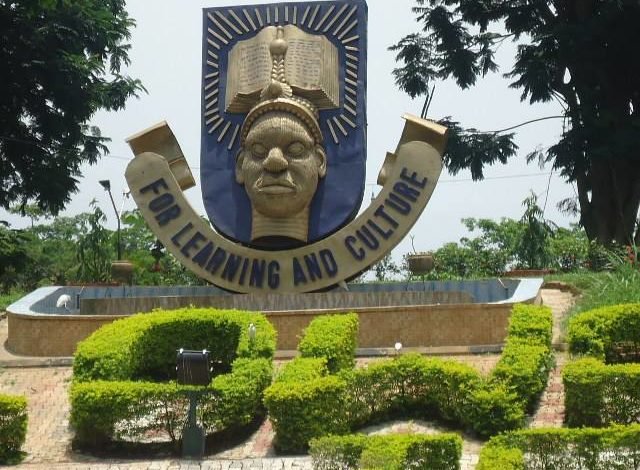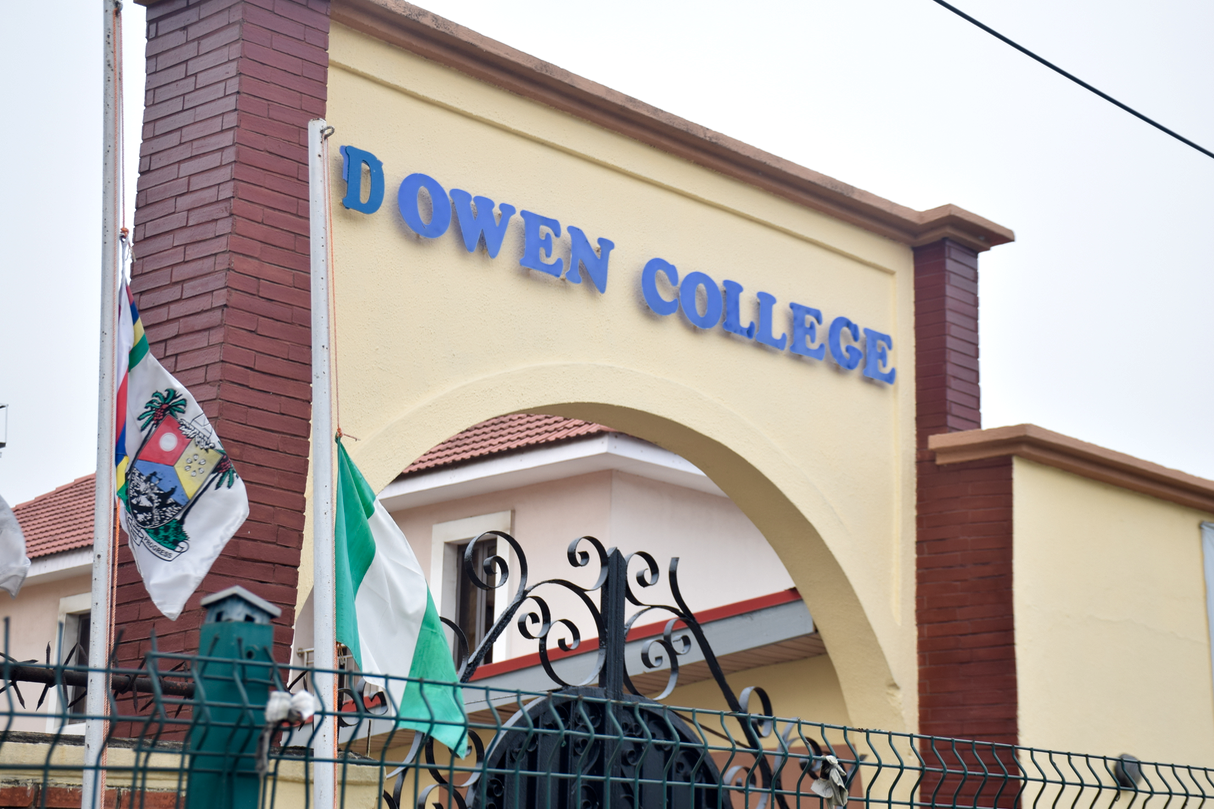In the last one week, the news that must have trended the most on social media was the death of Sylvester Oromoni, a 12-year-old student of Dowen College, Lekki, Lagos. It was the circumstances of his death that elicited high profile reactions from different quarters.
The death has inflicted deep pain and caused feelings of great sadness, not just on the family based in Warri, Delta State, but the anguish also extended to a family of mourners – friends, well-wishers, parents, students, celebrities, politicians, teachers, social media commentators, bloggers, government officials, etc – around the world who also share in the grief.
There was understandable outrage and palpable grief over the death of Sylvester and the news went viral instantly. As a parent, how do you even contemplate burying your 12-year-old child who was not sick before passing away? Social media influencers and notable celebrities have latched onto the news, expressing their anger and calling for justice in the matter. It is well within their rights to do so.
They have a civic responsibility and moral obligation to advocate for human rights, fairness, transparency and justice in this matter or any other matter. As a parent myself, I understand what the Oromoni family is passing through at this time and I want to use this opportunity to commiserate with them as they mourn the loss of their young son.
Advertisement
However, the point must be made that time is still the greatest healer of all wounds. No father or mother wants to bury his own children while they are still alive which explains why such memories are usually difficult to be erased. May God Almighty continue to give the Oromoni family the fortitude to overcome this painful loss and grant eternal rest to late Sylvester’s soul.
When you put yourself in their position, you will probably understand their pains better. Sylvester was the last born of the family and from the interviews his father has granted so far, he had a bright future ahead of him. Students – mostly from the secondary school age – aspire to become future leaders distinguishing themselves in different fields. They are happy to share their stories with parents, siblings, uncles, aunties, cousins and classmates, explaining what they want to become in life.
Most of the time, they want to become writers, doctors, lawyers and engineers. With rapid advancements in digital technology, those choices are now changing. On career days, students look far into the future and make career choices. Sylvester, according to his father, wanted to become a pilot but he did not live to achieve his dream. It was aborted abruptly. Sylvester’s painful death is the story that has gone viral and still trending on social media.
Advertisement
Dowen College has now been closed down indefinitely by the Lagos State government while investigation into the controversial death of Sylvester continues. Shutting the school was a wise decision and it is commendable. This is the same school that has an enviable record of producing bright and intelligent students.
Describing Sylvester’s death as “tragic and unfortunate”, the management of the school condoled with his family and promised to get to the bottom of the matter. The school which has been in existence for over 25 years has assured parents that it was taking steps to ensure the safety and security of their children. This should be standard for all schools. Talking about “safety and security” in schools, it is Dowen College today, which school will it be tomorrow?
This development calls for a serious national conversation by all key stakeholders in the education sector. We should not wait until we have another death on our hands before we act. What is going on in boarding schools should be discussed and “bullying” must be one of the topics. It is the controversial circumstances under which Sylvester died that escalated the matter and it should be a warning signal to all parents and secondary school principals as well as their proprietors. Primary schools should not be left out in the conversation.
You cannot blame parents who invest heavily in education for their children because they want the best for them and it is evident that education is a meal ticket to a better life. There is also nothing wrong in sending your child to a boarding school. Since the public education system in Nigeria has collapsed beyond redemption, we now have private schools lining up both sides of every high street.
Advertisement
But when parents send their children to school, the primary purpose is for them to study, pass their exams and become worthy in character and learning after leaving school. The joy of every parent is to see their investment in education to pay off.
I was privileged to have attended one of the best public secondary schools in Nigeria many years ago where we received quality education and excellent scholarship. At the age of 10, I was admitted into Government College, Ughelli (GCU) in Delta State as a boarding student. The Principal at the time was J.E. Jones, an Englishman.
The entire curriculum and activities in school prepared us to be strong and independent. We were also taught to be achievers and winners in addition to lessons on hard work, tolerance, perseverance, sportsmanship and leadership. Ask any old boy of GCU, he will you the same story and we wear the GCU mark of excellence as a badge of honour all the time.
Most private schools now strive to achieve the same awesome GCU experience based on their strategic objectives. I must confess that students of many private secondary schools are brilliant and they always come out in flying colours with excellent grades in their examinations.
Advertisement
Usually, it is a contest for the brightest among the brightest students – it is not whether the students will pass the exam; that is usually taken for granted. The issue is how well they will pass. Graduating students are garlanded for their outstanding performance and move on to the next phase of their lives.
However, in life, we must prepare for a time of crisis, when there is an unexpected twist and turn of events and imagine worst case scenarios. It can come in different forms. For example, no one prepared for the devastating impact of Covid-19 disease which has taken many lives in addition to wrecking global supply chains. Omicron, the latest variant, has caused global anxiety leading to new travel restrictions.
Advertisement
Indeed, every enterprise has the potential risk of a crisis situation that may blow up and threaten or damage the reputation of the organisation forever. The way out is to always anticipate emergency situations and prepare for them by working with a team of PR professionals who are experts in crisis communications management.
As the experts will tell us, we do not live in a perfect world, and no matter how we prepare, crises will still occur. How an organisation communicates publicly after a crisis has occurred is important in order to mitigate any damage. A key component of the strategy is to brief all stakeholders about the true situation of events as they unfold and constantly update them with new information.
Advertisement
For 15 years, I was part of the team that organised an annual national mathematics competition for JS3 and SS2 secondary schools across 200 centres in Nigeria – same day, same time for the first stage exam.
The second stage exam required the best student in each category from each state and the FCT (74 students and their respective maths teachers) to travel to Lagos every year. The best 10 students in each category from the second stage were invited to Abuja for the prize giving ceremony.
Advertisement
Most of the time, they travelled by road and a potential risk that parents and school principals worried about was motor accident that could be fatal. Thankfully, we did not record any incident in 15 years. But each time they come to Lagos and Abuja, and return safely, we were always thankful to God for making it possible.
There have been situations where hotel guests were found dead in their rooms or drowned in swimming pools. These are risks hotels have to deal with in their line of business. In oil producing communities, oil spillage is a potential risk. Death of any kind is painful but in the case of Sylvester, the parents and other sympathisers want justice.
From viral videos in circulation, Sylvester’s dad strongly believes his son was severely bullied leading to his untimely death in controversial circumstances. He says he wants the “truth” of his son’s death to come out and it is expected that ongoing investigations will be helpful. The police homicide team has taken over the case which is another important step in the investigation.
The management of Dowen College, from all indications, is cooperating with the police and Lagos State government in the matter. In addition, the school must find a way to engage with the family of late Sylvester who are still heavily traumatised.
While we mourn the unfortunate death of Sylvester, all parents – irrespective of tribe, religion, region or ethic group — must worry about the collapse of family values in our society and the effect on our youths. It is shameful that some parents are enablers of the bad behaviour of their children, sometimes even encouraging them to cheat at examinations.
Teachers and religious leaders also have a role to play in preparing our future leaders for the challenges ahead of them. Right from birth until they are 18 years old, our children are largely influenced by their parents, teachers and religious leaders through what they see and hear.
On top of that is access to the internet and what websites our children visit. Some online contents are not suitable for teenagers who clutch mobile phones day and night just so that they can be fully engaged on Facebook and Instagram.
We should even be more mindful what their younger brothers and sisters watch on television as well as the internet. The unrestricted access to the internet by these kids may yet be the biggest challenge for parents and teachers.
Braimah is the publisher/editor-in-chief of Naija Times (https://naijatimes.ng)
Views expressed by contributors are strictly personal and not of TheCable.






